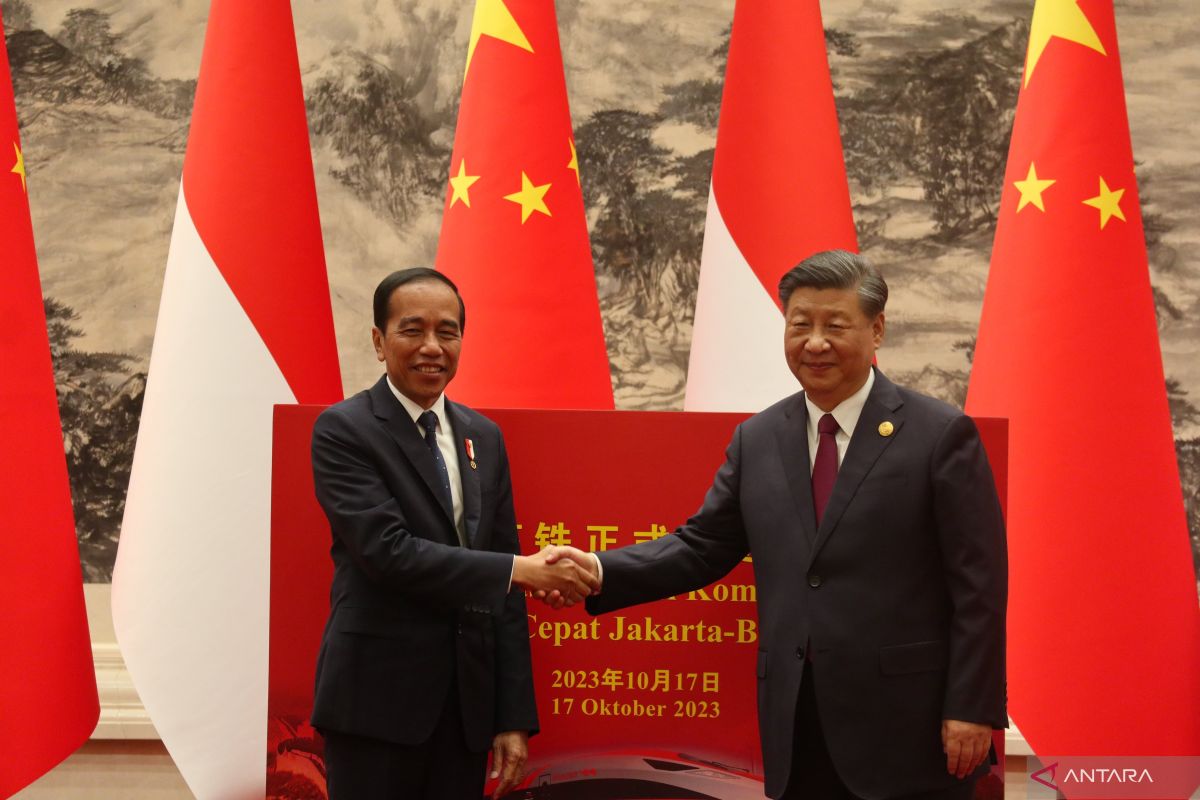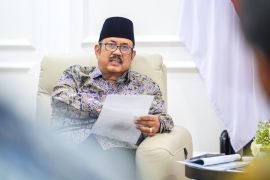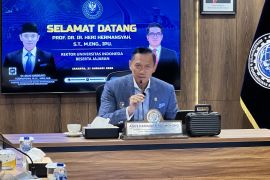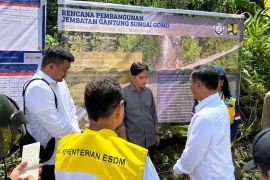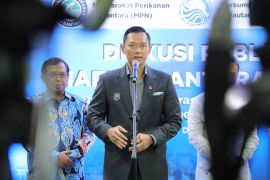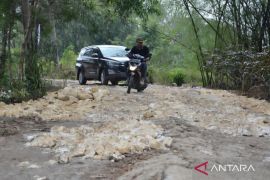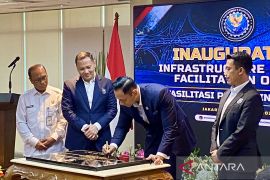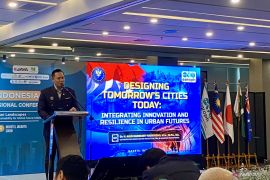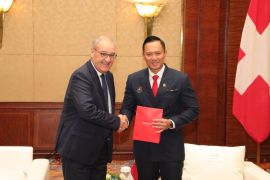Infrastructure is often used to measure one country’s competence as compared to other countries.
The World Bank released its 2023 Logistic Performance Index report in which it placed th Republic of Indonesia (RI) in 63rd place, or it scored 3 on a 5-point scale, out of 139 countries, or down from the position in 2018 when it was ranked 46th, or scored 3.15, out of 160 countries.
In contrary to the World Bank ranking, the International Institute for Management Development (IMD) World Competitiveness Center ranks Indonesia's economic competitiveness in 2023 at 34th position out of 64 countries. This achievement is an increase from the 44th ranking in 2022.
The two institutions measured Indonesia’s logistic and economic performance based on its infrastructure development.
Indonesia’s infrastructure development was assessed on the basis of its basic infrastructure, such as road, railway, and air transportation, followed by air transportation quality and infrastructure distribution, including ports. At this point, Indonesia's basic infrastructure score is in the 26th position, above its economic competitiveness at the 34th position.
The latest transportation infrastructure in Indonesia, which is the Jakarta-Bandung Fast Train or Whoosh, has a track length of 142.3 kilometers and a maximum speed of 350 kilometers per hour.
This train was built by the PT Kereta Cepat Indonesia China (KCIC) consortium between Indonesia and Chinese railway companies through Beijing Yawan HSR Co. Ltd.
The WHOOSH financing facility was agreed in 2017 between PT KCIC and the China Development Bank. The signing of the agreement was witnessed by Indonesian President Joko Widodo (Jokowi) and Chinese President Xi Jinping. The fast train facility was inaugurated on October 2, 2023.
Related news: Jokowi hopes for equal partnership in Belt and Road Initiative
BRF and infrastructure
Looking back, China had always encouraged infrastructure development in Indonesia, way before President Jokowi’s administration in 2014, or in 2013 to be exact when President Jinping spoke in front of members of the Indonesian House of Representatives (DPR RI) chaired by Marzuki Alie at that time.
At that time, President Jinping encouraged the realization of maritime cooperation supported by the Asian Infrastructure Investment Bank (AIIB) to assist countries in initiating the construction of various infrastructures and promoting interregional connectivity and economic integration.
AIIB was established from President Jinping's concept of One Belt One Road (Yi Dai Yi Lu). The belt refers to the land route that connects China to Central Asia and South Asia, as well as Europe and the railway that is also known as the Silk Road Economic Belt.
The route refers to the sea route or Maritime Silk Road in the 21st Century that connects China to Southeast Asia, the Middle East, East and North Africa, and Europe.
The first country to agree to the One Belt One Road (OBOR) concept was Kazakhstan through the signing of a cooperation agreement on the development of the Silk Road Economic Belt by establishing 51 main projects, with an investment worth US$27 billion in September 2013, followed by Indonesia as the important axis for the Maritime Silk Route, considering that the Silk Road between Indonesia and China had been established since Chinese voyager Admiral Cheng Ho made seven maritime expeditions to Asian and African countries, including stopping in Indonesia.
Establishment of the AIIB in 2014 was agreed by 21 countries, with investment from the Chinese government amounting to US$40 billion.
However, it was only at the Belt and Road Forum (BRF) Summit for International Cooperation in May 2017 in Beijing that cooperation was institutionalized as a multilateral initiative between countries under the Belt and Road Initiative (BRI) concept.
In AIIB's inaugural project, Indonesia received a loan of US$216.5 million for a national program to deal with slum settlements impacting the lives of residents in 154 cities and districts.
In the latest funding disbursal, the AIIB approved funding for three projects, two of which were granted to Indonesia. The amount of loan disbursed by AIIB reaches US$225 million to fund projects to increase dam operations and infrastructure development projects, including the Jakarta-Bandung Fast Train project worth Rp80 trillion and other projects in various regions in Indonesia.
At least 147 countries, including Indonesia, have signed an agreement on the BRI program, comprising countries from Asia, the Middle East, Latin America, Europe, and Africa. According to World Bank calculations, the benefits felt by BRI participating countries are reduced travel time by 12 percent, increased trade by 2.7-9.7 percent, increased income by 3.4 percent, and increased welfare for 7.6 million people from extreme poverty.
In May 2017, according to the Economic and Political Studies journal, China also added an investment of US$113 billion through the Silk Road Fund to the AIIB.
Related news: Jokowi calls for no politicization in Belt and Road cooperation
China’s goals
The 3rd BRF Summit for International Cooperation held on October 17-18, 2023, in Beijing emphasized China’s position in this cooperation. In his opening speech, President Jinping spotlighted some interesting aspects about BRF’s goals.
"As the saying goes, when you give roses to others, the fragrance will also linger in your hands. It means that helping others is also helping yourself. Seeing one country’s development as a threat will not make our country become better or accelerate our development,” he remarked.
According to the Chinese Foreign Affairs Ministry, the 3rd BRF Summit was attended by around 10 thousand invitees from 151 countries and 41 international organizations with 458 agreements made at the forum. At least 19 heads of state or heads of government and heads of international institutions attended the forum.
President Jinping said the BRI had progressed from an outline sketch to adding details, blueprint, and real projects.
He stated that the BRI principles applied include the principles of "joint planning, joint development, and mutual benefit", a philosophy of openness, environmentally friendly, sustainable cooperation, and achieving higher goals for the society.
He then outlined China’s eight steps in the BRI scheme, namely building multidimensional connectivity between countries, pushing for an open world economy with free trade and investment agreements between countries, and supporting sustainable "small but smart" programs through funding from the China Development Bank and the Export-Import Bank of China worth a total of 350 billion RMB (US$47.8 billion).
The other steps in the BRI scheme encompass involvement in green development; supporting scientific and technological innovation; supporting people-to-people exchanges; encouraging integrity-based Belt and Road cooperation; and strengthening BRI’s working institutions by hosting the BRF and establishing a BRF secretariat.
Indonesia's response
Having the opportunity to deliver a speech at the opening ceremony of the 3rd BRF, President Jokowi highlighted three points to make BRI stronger and more impactful.
"First, a synergy that provides ownership for the host country to run its national project independently. A sense of ownership is very important for the sustainability of the project,” he stated.
Apart from the Jakarta-Bandung Fast Train, the president stated that Indonesia will also synergize the development of the new capital city (IKN) Nusantara in East Kalimantan, along with energy transition and industrial downstreaming.
Second, he noted that BRI projects should be based on the principle of equal and mutually beneficial partnerships with careful planning. It must also be followed by the use of a transparent funding system, absorption of the local workforce, and the use of domestic projects.
Third, the sustainability of the BRI project must run for the long term and strengthen the country's economic foundation, rather than complicating its fiscal condition.
"The Chinese proverb says Yu gong yi shan, persistence will make miracles happen. Let us work together to advance our economic development and realize our people's prosperity,” he revealed.
Both President Jokowi and President Jinping emphasized that infrastructure development is long-term work that cannot be completed in just a matter of days.
Hence, careful calculations and planning are needed to ensure the projects bring benefits for the people’s welfare.
Related news: Indonesia's tenacious infrastructure push
Editor: Yuni Arisandy Sinaga
Copyright © ANTARA 2023
